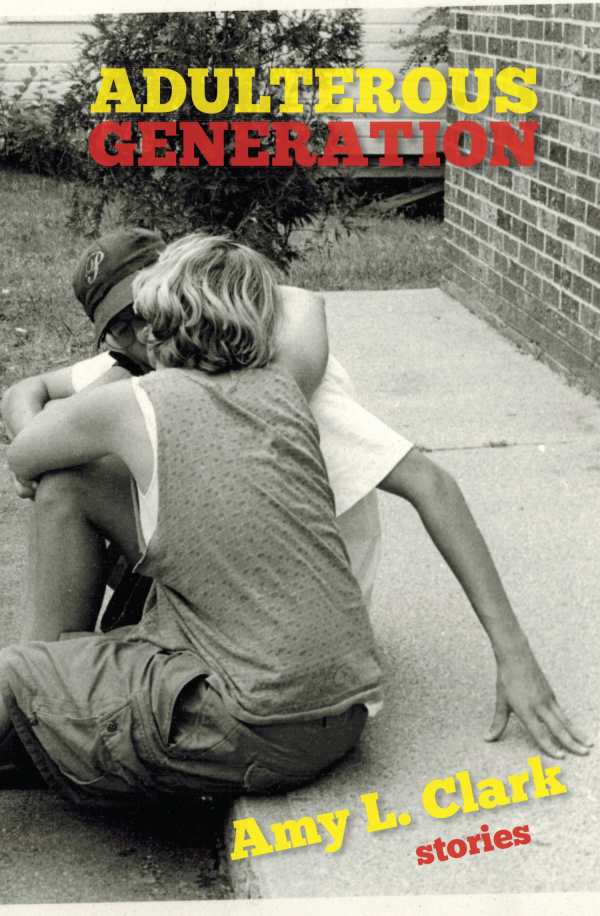Adulterous Generation
Stories
These stories tap into our collective anxiety and defy social norms.
Amy L. Clark’s short-story collection, Adulterous Generation, consists of twenty arresting stories that present moments in which seemingly nurturing environments become inhospitable to sustaining new life. As a result, Clark’s characters become “adulterous” to the status quo, that is, they stop adhering to standard social mores or senses of duty.
“Moments like these, she thinks it is more likely that the baby could survive in a fluorescent NICU than in her agonized and frustrated body,” imagines one conflicted character. The wife in another story begins to covertly throw dishes in the trash instead of washing them. Then there’s a foster child who risks his new home life by flooding the bathroom to make a better home for reptiles. In another remarkable story, when two female night-shift workers at neighboring businesses strike up a friendship, one eventually uses the other’s anti-rape weapon against her to rob her cash register.
Clark’s tone through the collection is notably somber. In “Quarters,” a pregnant wife abandoned when her husband enlists in the Marines becomes increasingly rattled that the broken laundromat dryer is cool, ultimately leading her to act out sexually with a nearby disabled man.
Clark expertly weaves in many symbols like the cool dryer that hint at the deterioration of domestic bliss. In “Remembering My Mother in My Oscar Speech,” a teenager tries to cash in on the Barbie dolls her mother made her keep in boxes as collectibles, only to find that their pretty faces and perfect arms have been chewed up by mice.
Clark taps into a collective anxiety, an awareness that we all have our breaking points, and that they may turn out to be as minor as the sight of a mauled doll or a too-cool dryer. Her stories, then, are therapeutic in that they remind us that we could all be just one blaring smoke alarm away from losing it.
Adulterous Generation offers relief via a few rare instances of genuine human connection—the foster brother who stays with his sibling as he waits to get in trouble, the clerk who helps a robber get away because she wants to get away too. Clark artfully drops slight flashes of humanity into her collection as if to signify that all is not lost.
Reviewed by
Amanda McCorquodale
Disclosure: This article is not an endorsement, but a review. The publisher of this book provided free copies of the book to have their book reviewed by a professional reviewer. No fee was paid by the publisher for this review. Foreword Reviews only recommends books that we love. Foreword Magazine, Inc. is disclosing this in accordance with the Federal Trade Commission’s 16 CFR, Part 255.

